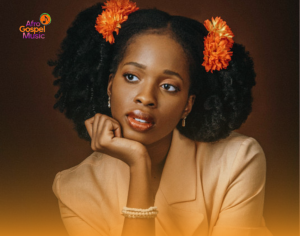It’s the season of love, and we are shining light on Gaise Baba’s “Titilai” song. But before we dive right into it, let’s have a brief introduction of who the songwriter and musician is.
Brief Introduction: Who’s Gaise Baba?
Akinade Ibuoye, popularly known as “Gaise Baba”, is a Nigerian talented artist, entrepreneur, and all-around creative force. His Afro-fusion music has earned him awards and recognition, and he sings in Yoruba, English, and Pidgin. With his background knowledge in Economics and a Diploma in Music Business from Berklee College of Music, Akinade is a true Renaissance man.
In 2011, during his interview with Bella Naija, he noted that although it was in 2004 when he really started writing songs and performing at small gatherings, it wasn’t until 2010 after completing his National Youth Service that he chose music as a fulltime career. His debut album was named after his stage name “Gaise Baba”.

Read Also: Here’s why Elijah Level by Gaise Baba is the song of the Moment
Títíláí: A Love Song
“Títíláí” was released as a single in 2015 – that’s a year after Gaise Baba got married to his heartthrob, Funto Ibuoye. So, it wouldn’t be far from the truth if we say the song is used to mark their anniversary. But beyond that, Títíláí is a sweet and playful song about love in marriage. Needless to say there was a remake of this single love song, a fresh live performance of the track at that, but ultimately, it tells the story of a devoted husband reaffirming his everlasting commitment to his wife.
The song beautifully celebrates marriage and shines a light on the biblical ideals of love, grace, and a love that lasts forever. See few lyrics here:
Forever, we’ll always be together
Stick through every weather
Lojojumo odun
From January to December
No retreat and no surrender
No juju can put us asunder
Na you be my answer o, baby
Read Also: ‘Talk Am’ This Gaise Baba Song Will Make You Reflect on The Church
What I Think About The Song
Gaise Baba’s “Títíláí” can be seen as a beautiful musical love letter, and a heartfelt promise of love that stands the test of time. The effortless style of weaving Yoruba and English lyrics together, thereby creating rich words that expresses deep affection and gratitude for one’s partner, is magical.
Watch the video here
The song’s infectious Afrobeat rhythm perfectly underscores the romantic narrative, making “Títíláí” a truly captivating anthem of enduring commitment – you know, that kind of love song that makes you believe in forever.
I, for one, still solidly believe in God’s type of love – the kind that is eternal; fierce, yet gentle and patient, always forgiving and committed to forever – just like the theme of the song Títíláí, and I know you also do.
Being committed to one person forever goes beyond faithfulness, it shows a strong sense of decision-making even against what seemingly doesn’t make sense. Vows taken means commitment without restrictions or a timeline – meaning you’ll have to keep treating your partner with respect and love, even when you’re angry or upset.
1 Peter 4:8 says: “Above all, keep loving one another earnestly, since love covers a multitude of sins.”
Regardless of the level of the world’s depravity, God’s kind of love will always win.
Do you believe it?








